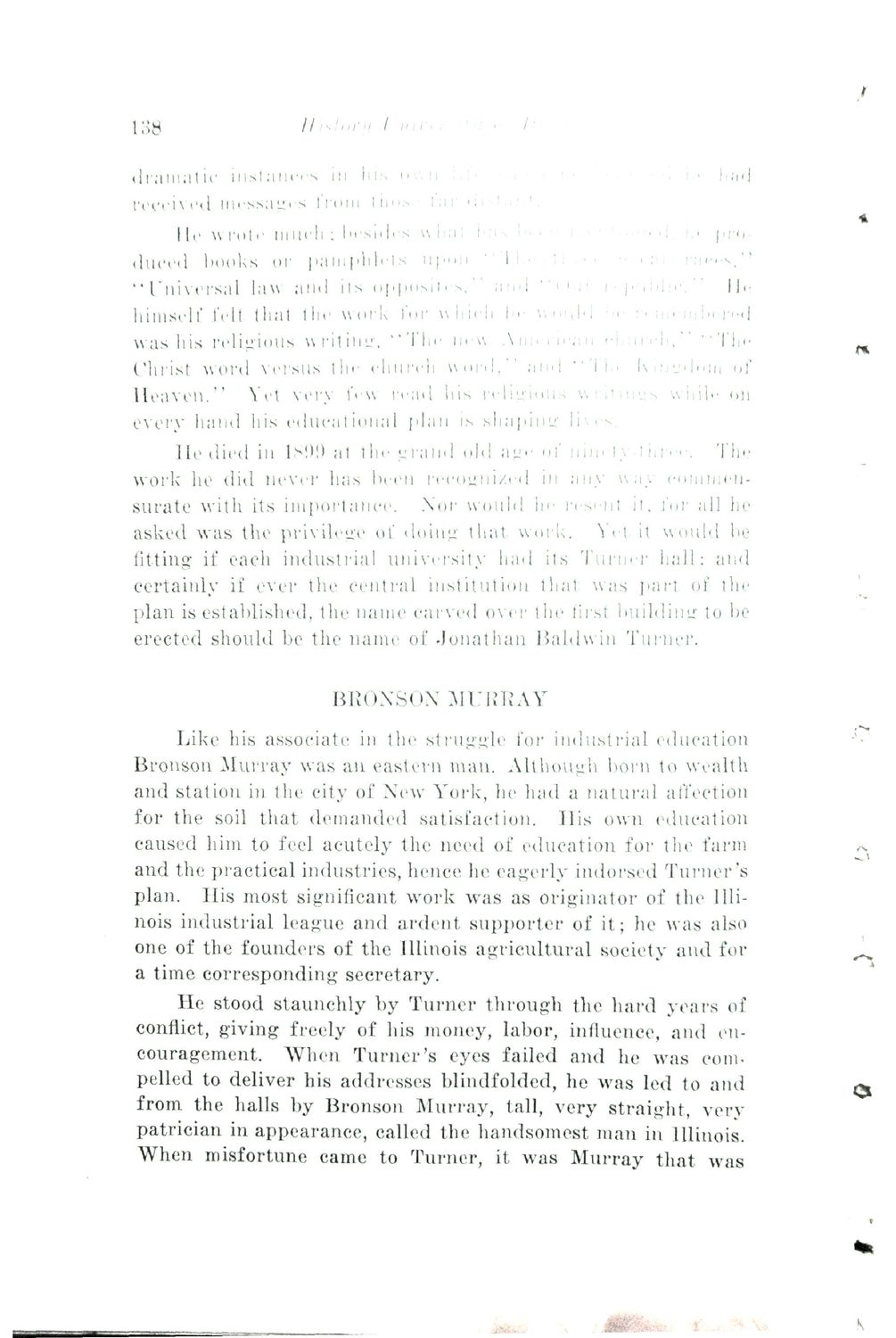| |
| |
Caption: Book - History of the University (Powell)
This is a reduced-resolution page image for fast online browsing.

EXTRACTED TEXT FROM PAGE:
138 History University of Illinois dramatic instances in his own life when he believed he had received messages from those far distant £i| He wrote much; besides what has been mentioned, he produced books or pamphlets upon "The three great races," "Universal law and its opposites," and "Our republic." He himself felt that the work for which he would be remembered was his religious writing, "The new American church," "The Christ word versus the church word," and "The Kingdom of Heaven." Yet very few read his religious writings while on every hand his educational plan is shaping lives. He died in 1899 at the grand old age of ninety-three. The work he did never has been recognized in any way commensurate with its importance. Nor would he resent it, for all he asked was the privilege of doing that work. Yet it would be fitting if each industrial university had its Turner hall; and certainly if ever the central institution that was part of the plan is established, the name carved over the first building to be erected should be the name of Jonathan Baldwin Turner. BRONSON MURRAY Like his associate in the struggle for industrial education Bronson Murray was an eastern man. Although born to wealth and station in the city of New York, he had a natural affection for the soil that demanded satisfaction. His own education caused him to feel acutely the need of education for the farm and the practical industries, hence he eagerly indorsed Turner's plan. His most significant work was as originator of the Illinois industrial league and ardent supporter of it; he was also one of the founders of the Illinois agricultural society and for a time corresponding secretary. He stood staunchly by Turner through the hard years of conflict, giving freely of his money, labor, influence, and encouragement. When Turner's eyes failed and he was com* pelled to deliver his addresses blindfolded, he was led to and from the halls by Bronson Murray, tall, very straight, very patrician in appearance, called the handsomest man in Illinois. When misfortune came to Turner, it was Murray that was
| |